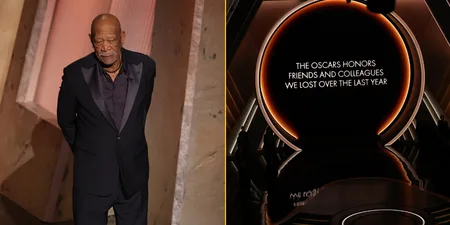Happy birthday to the G.O.A.T.!
February 6th is Bob Marley’s birthday. The legendary reggae icon would have turned 73 this year had his life not been taken way too soon by cancer in 1981 at the age of 36.
Sharing the message of reggae music to audiences via his Reggae 45 podcast, Grammy Award-winning BBC 6Music presenter Don Letts has released a special episode of the podcast to celebrate the life and times of Bob Marley.
Released in conjunction with restaurant chain Turtle Bay, the Bob Marley birthday episode of the podcast will feature an interview with Chris Salewicz, who aside from writing for NME magazine and penning books about Bob Marley and reggae culture, he was very good friends with Bob Marley.
Don Letts was central to the reggae and punk scenes during the 70s and 80s as the DJ that single-handedly turned a whole generation of punks into reggae fans. It was as a DJ at the first punk club, The Roxy, in 1977, that he made his first film, The Punk Rock Movie, with The Sex Pistols, The Clash and many others. Since then Letts has won countless awards, performed on all corners of the globe and is now one of the most respected names in music.
Chris Salewicz is a journalist and broadcaster who has written for everyone from Q Magazine to Mojo. He is the author of 17 books and was also formerly a Senior Features writer for NME Magazine between 1975-1981, which resulted in him building a unique friendship with Bob Marley – in fact, his relationship with Marley led to the writing of the book – Bob Marley (The Untold Story), which gives insights into the man himself, a story way beyond the music.
With a heritage as notable and philosophical as Don Letts’, and with Chris Salewicz’s knowledge and first-hand experience with Marley, this episode of Reggae 45 is a very in-depth and exciting look at an icon everyone loved on what would have been his 73rd birthday.
Exclusively ranking the 15 best Bob Marley records for JOE, check out Don Letts and Chris Salewicz’s list below:
15. “Natural Mystic”
Recorded at Lee “Scratch” Perry’s Black Ark studio in 1976, the backing vocals came not from the I Three but from the all-male vocal trio the Meditations. Often used as a metaphor for metaphysical truths floating in the air of Jamaica; and, more specifically, that of Nine Miles, Bob Marley’s birthplace.
14. “Rebel Music”
Or to give it its full title “Rebel Music (3 O’Clock Roadblock)”. Driving the new BMW he had bought with his deal for signing to Island Records as a solo act, Bob was with his then girlfriend Esther Anderson, along with Lee Jaffe, a white American, in the far west of Jamaica. Running into yet another police roadblock, and throwing away his “little herb stalk”, he resumed the drive, throwing out lines as Jaffe accompanied him on harmonica.
13. “Positive Vibration”
The opening track of Rastaman Vibration, Bob Marley sums up the entirety of his life philosophy in the song’s brief running time. It stands in stark contrast to the LP’s closing number, “War”. But such bookending more than adequately states Bob Marley’s ever-present dualism.
12. “Trenchtown Rock (Live)”
Like Bruce Springsteen’s New Jersey or The Clash’s Westway world, the notion of Bob Marley was firmly rooted in the downtown Kingston slum of Trenchtown, where he had spent his teens, a world where you could be a “big fish” or a “sprat”. Although somewhat romantically mythologised and only visited by the most resolute, Trenchtown has become one of the most famous neighbourhoods on this planet.
11. “Iron Lion Zion”
Written and recorded by Bob Marley in either late 1973 or early the next year, “Iron Lion Zion” was resurrected with additional instrumentation and released as part of 1993’s Songs of Freedom boxset. Put out as a single, it was a Top 5 tune in the UK, bringing notions of militant Rastafari back into the hit parade.
10. “Rastaman Live Up”
“Rastaman Live Up” and “Blackman Redemption” were a pair of singles released on Bob’s own Tuff Gong label in Jamaica during the life of the softer-themed Kaya album. Although both tunes were later included on the posthumous Confrontation LP, their militant tone served as a trailer for his next two albums, the far more militant Survival and Uprising records.
9. “Easy Skanking”
Album opener “Easy Skanking” set the feel for the Kaya album, sometimes criticised for its laidback tone. Its sultry feel, nurtured as much by the time Bob Marley recently had spent in Miami as by Jamaica, delivered a softer, audience-friendly Bob Marley. And “Easy Skanking” is one of his most memorable songs.
8. “Punky Reggae Party”
Produced at Island Records’ Hammersmith studio by Lee “Scratch” Perry, newly returned from working on The Clash’s “Complete Control”, “Punky Reggae Party” celebrates Bob Marley’s overview of what was actually happening on the streets in London during 1977, his period of exile in the UK capital. With backing by Aswad, this supposedly throwaway tune has lingered as one of his most important cultural works.
7. “Satisfy My Soul”
Kaya was a collection of love songs and homages to the power of ganja. The album also provided a pair of global hit singles: the beautiful “Is This Love” and the questioning “Satisfy My Soul”, another song originally worked up with Scratch Perry.
6. “Natty Dread”
Originally named Knotty Dread, the title of Bob Marley’s first solo album is a simmering statement of intent, both for himself and for humanity. Bob’s first recordings without Peter Tosh and Bunny Wailer, “Natty Dread’s” somewhat austere feel is perpetually augmented by the sweet harmonies of Rita Marley, Judy Mowatt and Marcia Griffiths, the I Three.
5. “Could You Be Loved”
The reggae-disco sound of “Could You Be Loved” is one of Bob Marley’s biggest-ever crossover tunes. But beneath the pulsing dancefloor rhythms the listener is being subversively re-programmed: tossed aside almost in a snatch by the backing singers from Bob’s very first 45, “Judge Not”: “The road of life is rocky; And you may stumble too. So while you point your fingers, someone else is judging you.” Judgement!
4. “Exodus”
In exile in London from Jamaica, where he had narrowly escaped being assassinated, Bob Marley went into the studio, declaring that the new album would be called Exodus – even though no such tune of that name yet existed. When the epic work that was the “Exodus” track finally appeared, there were those who criticised it for sounding like a song belonging to the new form of disco – which precisely missed the point, for Bob Marley’s intention always was that it should be a disco tune.
3. “Concrete Jungle”
Initially written under the auspices of Danny Sims, Johnny Nash’s manager – who was a crucial figure in the development of Bob Marley – “Concrete Jungle” was one of the statement tunes of Catch A Fire, the Wailers’ first Island Records album. “I’ve never known sweet caress,” sings a mordant Bob Marley, revealing the love he had always felt missing in his life. The first of the Catch A Fire tunes to be augmented musically at Island’s London studios, the guitarist Wayne Perkins’ confident, swirling twirls defined a production of astonishing clarity, one of the greatest album openers ever, this tale of the grim reality of life in Arnett Gardens, Kingston’s then newest housing scheme.
2. “Redemption Song”
On his 1979 tour of the United States, Bob Marley had been toying with the structure of a new song called “Redemption Song”. When Bob played the completed songs for what would be the Uprising LP to Chris Blackwell in the Spring of 1980, the record company boss sensed that the LP could go to a higher level. “I feel there’s something else you’ve got to give,” he told the singer. The next day Bob Marley played Blackwell a tape of “Redemption Song”, some of its lines directly taken from the writings of Marcus Garvey, the black power activist. A folk ballad, played on an acoustic guitar, the song had a crystalline beauty that was like a summation of the entire philosophy of Bob Marley, an elegiac work whose haunting qualities came to dominate the album when positioned as its closing track. Bob Marley had written his own eulogy.
1. “Get Up Stand Up”
Co-written with Peter Tosh, the bare bones of “Get Up Stand Up” had been worked up by Bob during a brief visit to Haiti, where he was deeply disturbed by the evident poverty and oppression. Featured on the Burnin’ album, the song became an international anthem to resistance to ‘Babylon’, one of Bob Marley’s most enduring tunes. Being co-written with his longtime spar Peter Tosh only adds to its poetic majesty.
Listen to Don Letts’ special Bob Marley birthday episode of Reggae 45 with Chris Salewicz here.







































